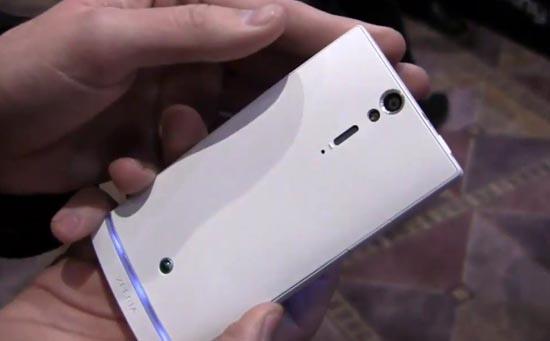
Since the rise of Android, several manufacturers have made a killing by using Google's free, licensed software. Motorola teamed up with Verizon and has turned "DROID" into a household name, Samsung has wooed the world with their Galaxy S II line and HTC has sailed on the success of Sense UI and their topnotch build quality. Despite the fact that those are only a small fraction of the long list of Android partner OEMs, these are the top dogs here in the States and largely throughout the world.
One that has been looming in the in the shadows for the past two years is Sony Ericsson and their Xperia line. When it was first revealed back in 2009, the Xperia X10 was poised to be a contender. The device itself was a tad chunky, but its specs rivaled the best of the existing devices at the time. The X10's downfall, though, was latency in getting the device to market and keeping the software up to date.
Since then, several other devices from the Sony Ericsson camp have piqued our interests, like the Xperia Play and Xperia Arc. But they, too, fell short of the mark. Even the PlayStation Suite framework seemed promising, yet nothing notable has come of it.
Back in October, we learned that Sony wanted to buy Ericsson's part of the Sony Ericsson joint venture. Late last month, the buyout was given the mark of approval. Former CEO Howard Stringer then stepped down and was replaced with Kazuo Hirai. Then their rather disappointing fiscal Q3 2011 earnings report was posted. In other words, a lot has gone down for Sony in a very short time, and the road ahead looks to be quite bumpy – they have a lot of holes to mend and I'm concerned as to what it could mean for their mobile efforts.
Following the disappointing earnings reports, which revealed revenues dropping by nearly $2 billion, new CEO Hirai spoke up. "If we don’t turn this around, we could be sitting in some serious trouble," says Hirari. The interesting part, however, is what came after that. Hirai explained that instead of innovating new hardware, their main goal to differentiate and reinvigorate the company is to focus on user experience. Whether this applies directly to mobile hardware or their future endeavors in all areas (PlayStation 4 console, cameras, TVs, etc.) is up to interpretation.
My question is: are people still interested in Sony's mobile efforts anymore?
The Xperia ion and Xperia S were both announced and shown off in Las Vegas last month at the Consumer Electronics Show, and to be honest, after a few minutes of hands-on time, neither really moved me. Their specifications are on par with some of the most current high-end mobile devices, like the Rezound or Galaxy Nexus. But aside from a distinguishable difference in design, there is nothing particularly differentiating about their phones.
This is the rut that Sony Ericsson fell into, a perpetual lag time behind the market, both in hardware and software. Now that they're caught up with hardware, the market is about to leave them behind again with quad-core processors, which will ultimately bring much needed improvements in performance and battery life. Specifications aren't everything, but to keep with demand, Sony will have to put some efforts in new and improved hardware.
I'm not saying that user experience isn't important. In fact, that's one of the most important things a manufacturer can focus on. Regardless of the specifications, a bad user experience can turn a customer away faster than anything. But to an extent, specifications, hardware and user experience all tie together. If you fall short on one part, you could miss on all three.
The one thing worth noting about Sony's upcoming devices are their new CMOS sensors, which will bring HDR recording to mobile for the first time and improved RBGW coding for enhanced low-light shots. Still, I imagine a lot of focus will be put on image sensors in 2012 and options will be abundant. And better image sensors alone are not going to be enough to cut it in the big leagues.
Sony makes great products, and those who have bought them seem to enjoy them quite a bit. But if they were better about bringing their devices to market a little faster they might be in a better place right now. Much like Research In Motion, they've constantly been a day late and a dollar short. Newer devices could change my current stance, but right now, based on what Hirai had to say, I have little (next to no) interest in any Xperia phones, current or future. I wish Sony the best and truly hope they can bring this around. At least the new CEO knows he has his work cut out for him.
Not to say Sony won't make the cut with Android, but they need to consider adopting Windows Phone, where hardware, differentiation and software updates are less of an issue. (I wouldn't hold my breath considering Microsoft is one of their largest competitors, especially in the gaming industry. Then again, they make Windows laptops. Anything could happen.)
How do you feel about Sony's Xperia line? Do you feel Sony has a chance to turn things around and be a contender in the US smartphone market? Or will they need to innovate new hardware and focus on user experience to keep up?